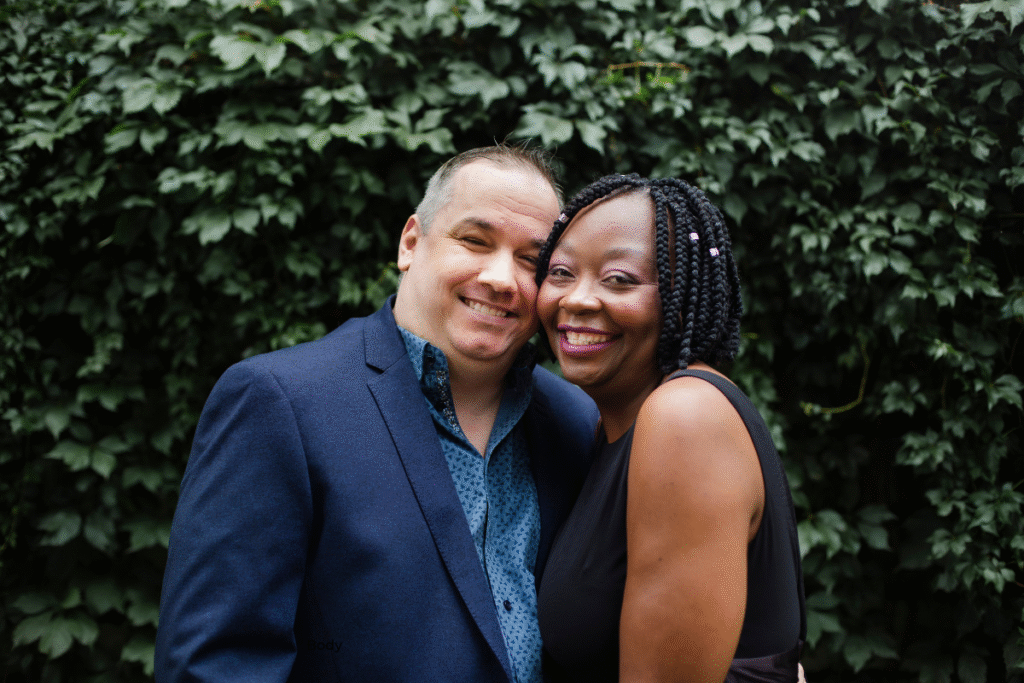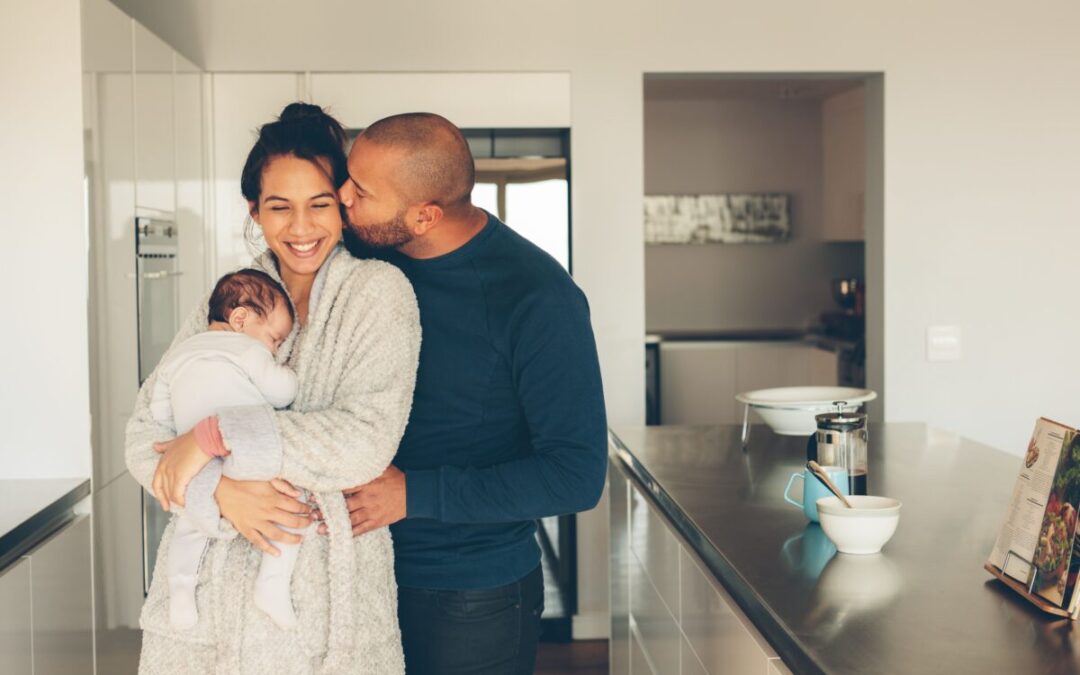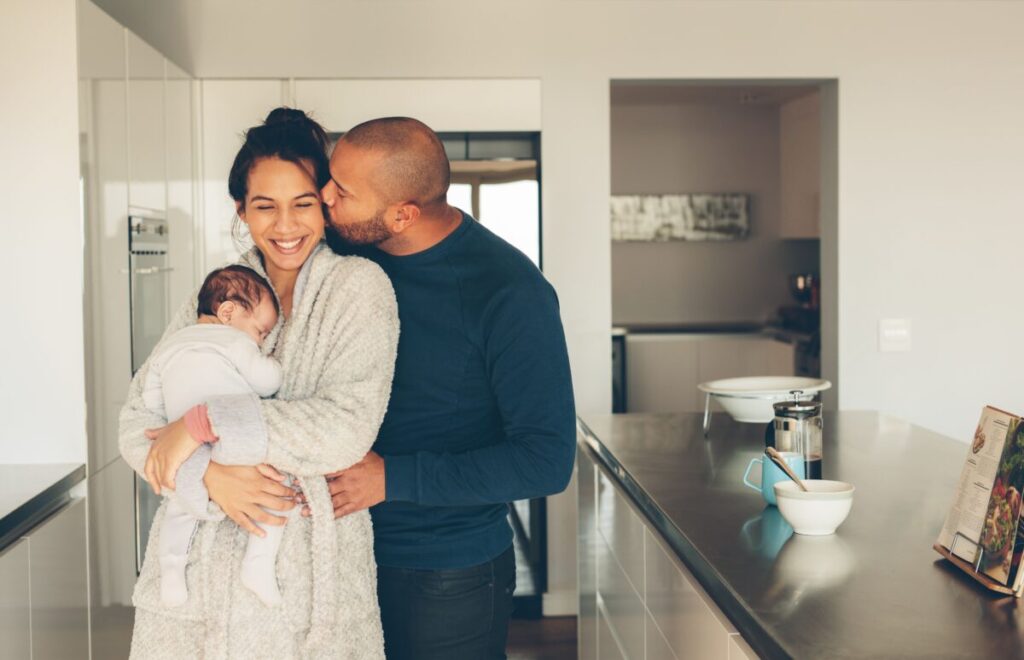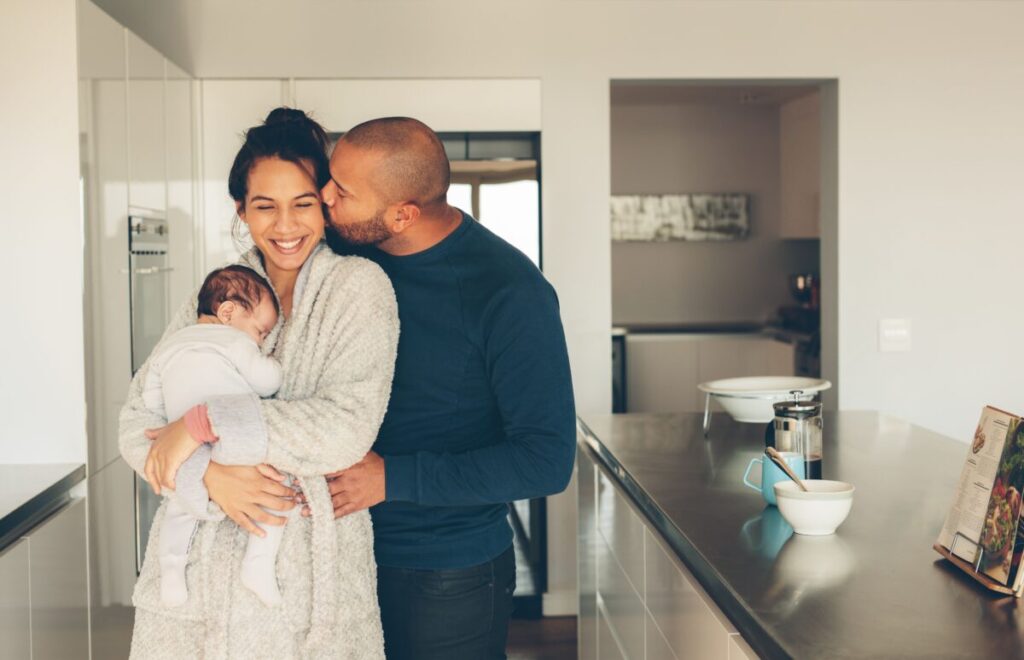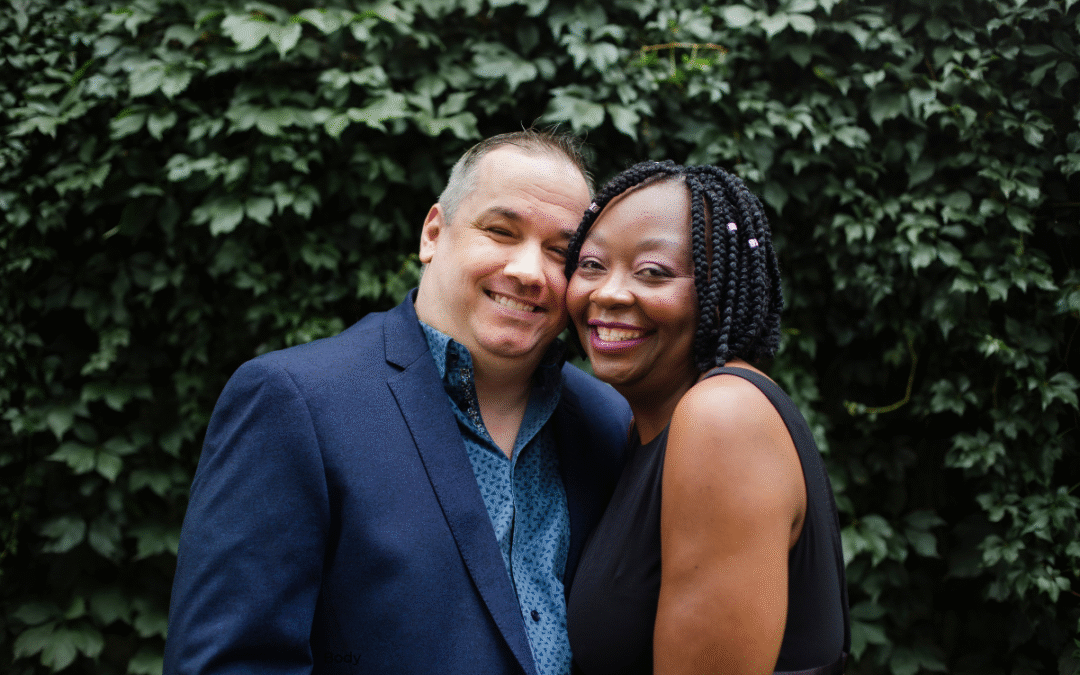
Building Bridges in Interracial Relationships: A Guide
Building Bridges in Interracial Relationships
Reviewed by Debra Feinberg LCSW at Maplewood Counseling
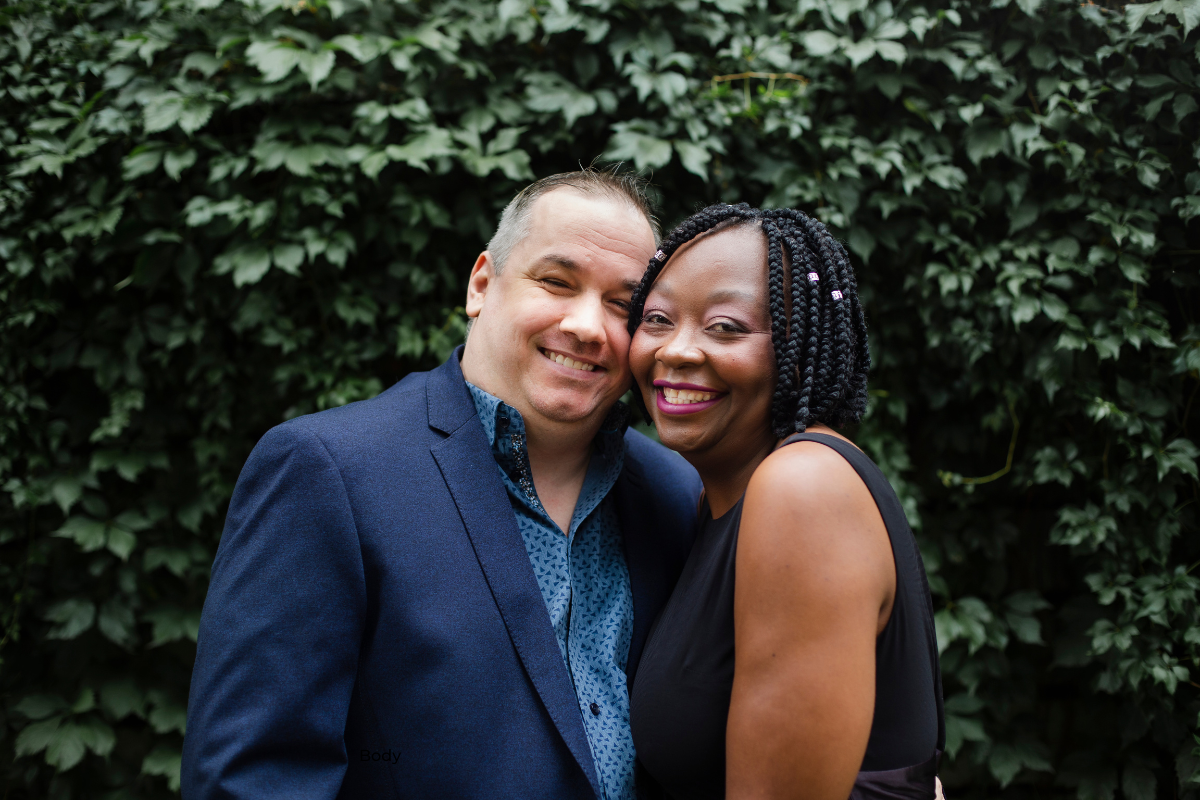
Falling in love means embracing another person completely—their past, their present, and their hopes for the future. For interracial couples, this journey includes navigating a rich blend of cultures, backgrounds, and life experiences. While this diversity can be a source of incredible strength and beauty, it can also bring unique challenges. You might find yourselves facing questions from family or societal biases that other couples don’t. Does it sometimes feel like you have to explain your love to the world? You’re not alone in feeling this way.
Many interracial couples face external pressures and internal misunderstandings that can test their bond. The good news is that these challenges can become opportunities to build a deeper, more resilient partnership. With empathy, open communication, and a commitment to learning, you can build a bridge between your two worlds that is strong enough to withstand any storm. This post will explore how to navigate these complexities, celebrate your differences, and forge an unshakeable connection built on mutual understanding and respect.
Common Hurdles for Interracial Couples
Every relationship has its tests, but interracial partnerships often come with a distinct set of hurdles. These can stem from differing cultural norms, family expectations, or the subtle and not-so-subtle biases that still exist in our communities. Recognizing these challenges is the first step toward overcoming them together.
One of the most significant pressures can come from family. Your loved ones may have conscious or unconscious biases, or they might simply be anxious about a future they don’t understand. This can manifest as awkward questions, disapproving comments, or a general lack of support that leaves you feeling hurt and isolated. It can be incredibly painful to feel like you must choose between your family and the person you love.
Beyond family, you may also encounter societal biases. This could be anything from stares in public to microaggressions or outright discriminatory remarks. These experiences can be draining and infuriating, and they can put a strain on your relationship if you don’t have a strategy for handling them as a team. One partner may be more accustomed to dealing with racism, while the other may be experiencing it for the first time, creating a gap in understanding that needs to be bridged.
Finally, even with the best intentions, cultural differences can lead to misunderstandings within the relationship itself. Your communication styles, approaches to conflict, or ideas about family roles might be shaped by your backgrounds in ways you don’t even realize. What feels like normal behavior to one person might feel disrespectful to the other, creating friction that can grow if left unaddressed.
A Story of Unity and Understanding
Think of Maya and David. Maya, a Black woman, grew up in a close-knit family that was very direct and expressive in their communication. David, who is white, was raised in a family that was more reserved and avoided direct conflict. Early in their relationship, they faced a difficult situation when David’s uncle made an insensitive comment about race at a family dinner.
Maya was deeply hurt and wanted David to confront his uncle immediately. David, uncomfortable with confrontation, wanted to let it go and talk to his uncle privately later. This difference in approach led to a major argument. Maya felt that David wasn’t defending her, while David felt that Maya was escalating the situation unnecessarily.
It took a lot of conversation for them to understand each other’s perspectives. David came to realize that for Maya, a public stand against racism was about safety and respect. Maya learned that David’s hesitation wasn’t a lack of love but a product of his upbringing. They decided on a plan for the future: if something similar happened again, they would present a united front. David agreed to speak up in the moment, simply by saying, “We’re not going to have this conversation,” and they would address it more deeply as a couple later. This strategy helped them feel like a team, turning a point of conflict into a source of strength.
Actionable Tips for a Stronger Partnership
Building a partnership that thrives on its diversity requires intention and effort. As one of our therapists at Maplewood Counseling often says, “Understanding your partner’s lived experiences is key to building empathy and trust in interracial relationships.” Here are some practical ways to strengthen your bond.
1. Educate Yourself with an Open Heart
Make a genuine effort to learn about your partner’s cultural background. This goes beyond food and festivals. Read books, watch documentaries, and listen to podcasts by people from their culture. Ask your partner to share stories about their upbringing, their family’s values, and their experiences with race and identity. Approach these conversations with curiosity, not judgment. Your goal isn’t to become an expert; it’s to build empathy and show your partner that you care enough to understand their world.
2. Confront External Challenges as a Team
When you encounter biases or pressure from family, it’s essential to face it together. Before you attend family events or navigate potentially challenging social situations, have a conversation about how you will handle them. Decide on your shared boundaries and what your responses will be. Knowing you have a plan and that your partner has your back will empower both of you. This unity sends a clear message to others that your partnership is non-negotiable.
3. Celebrate and Integrate Your Differences
Your cultural differences are not something to be minimized; they are something to be celebrated. Make a point of incorporating elements from both of your backgrounds into your life together. Cook traditional meals, share music, attend cultural events, or learn phrases in each other’s languages. When you create a shared life that honors and integrates both of your heritages, you build a unique family culture that is rich, vibrant, and entirely your own. This transforms your differences from potential points of friction into sources of joy and connection.
4. Prioritize Open and Honest Communication
Because your lived experiences may be very different, you can’t assume you understand what your partner is feeling. You must be willing to have brave and sometimes uncomfortable conversations about race, privilege, and identity. Use “I” statements to express your feelings without placing blame. For example, “I felt hurt and alone when that comment was made,” is more effective than, “You didn’t do enough to support me.” Creating a safe space for this kind of vulnerability is the bedrock of a trusting relationship.
Empower Your Partnership
An interracial relationship is a powerful testament to love’s ability to transcend boundaries. While it may come with unique challenges, it also offers profound opportunities for personal growth and a deeply enriching partnership. By educating yourselves, standing together as a team, celebrating your diversity, and communicating with courage and compassion, you can build a lasting bond. Your relationship can be a source of strength, joy, and a beautiful example of connection in a complex world.
Navigating conversations with family can be one of the toughest parts of this journey. To help you feel more prepared, read these **”Tips for Navigating Family Conversations About Cultural Differences.”
Tips for Navigating Family Conversations About Cultural Differences
Having conversations with family members about cultural differences can be challenging. It’s important to remember that these conversations are an opportunity for growth and understanding, both for yourself and your loved ones. Here are some tips to help guide you through these potentially tricky conversations:
- Start with empathy: Put yourself in your family member’s shoes and try to understand where they are coming from before jumping into a conversation about cultural differences.
- Listen actively: Make sure you truly listen to what your family member is saying without interrupting or getting defensive. This will show them that their perspective is valued and create a more productive conversation.
- Ask questions: If you don’t understand something or want more clarification, ask respectful and curious questions to gain a better understanding of your family member’s culture.
- Share your perspective: It’s important to express how you feel about the situation and how their beliefs or actions may have affected you. Use “I” statements instead of accusatory language.
- Find common ground: Look for similarities in your values and beliefs, even if there are differences in cultural traditions or practices. This can help bridge the gap between your perspectives.
- Establish boundaries: It’s okay to set boundaries when it comes to discussing sensitive topics, especially if they become heated or emotional. Let your partner know what you are and are not comfortable discussing, and honor their boundaries as well.
- Practice forgiveness: Holding onto grudges or resentments can harm your relationship in the long run. Practice forgiveness, even if it’s difficult, to move forward and build a healthier connection with your partner.
Remember, every relationship is unique and has its own set of challenges. Don’t compare yours to others, but focus on improving your partnership in a way that works for both of you. With dedication and support from professionals, you can transform conflicts into opportunities for growth and strengthen the emotional bond between you and your partner.
Strengthen your relationship today by exploring expert-guided strategies tailored to your unique needs. Whether you’re navigating challenges or simply looking to deepen your connection, we’re here to support you every step of the way.
Schedule your first session now and take the first step toward a stronger, more fulfilling partnership.
FAQs about interracial couples
Can different cultural backgrounds be a challenge in relationships?
Having different cultural backgrounds can present unique challenges in relationships, but with open communication and mutual understanding, these differences can also enhance the richness of your partnership. Our therapists can provide guidance on navigating cultural differences in a healthy way.
How do we handle external pressures from family and society?
External pressures from family and society can add strain to interracial relationships. Our therapists are here to support you and your partner in setting boundaries, communicating effectively with loved ones, and celebrating your relationship despite any outside negativity.
What if one partner feels disconnected from their cultural identity?
In interracial relationships, it’s common for one partner to feel disconnected from their cultural identity or struggle with their own cultural background. Our therapists can provide a safe space for exploring these feelings and finding ways to connect with one’s culture while also honoring the relationship.
How do I handle conflicts related to race or cultural differences?
Conflicts related to race or cultural differences can be challenging, but our therapists are trained in navigating these conversations and finding productive resolutions. We will work with both partners to understand each other’s perspectives and find common ground.
Can therapy really help us improve our relationship?
Absolutely! Therapy has been proven to have positive effects on relationships, including improved communication, reduced conflict frequency, and increased satisfaction. With our expert guidance and tailored approach, we can support you and your partner in navigating any challenges and enhancing your connection. Our goal is to empower you both with the tools and skills needed for a happy, healthy partnership. Don’t hesitate to reach out and see how we can help transform your relationship for the better.
What if we have different cultural backgrounds?
Our therapy services are inclusive of all backgrounds and cultures. We understand that every relationship is unique and may face different challenges due to cultural differences. Our therapists are trained in cultural sensitivity and will work with you both to find solutions that respect your individual backgrounds while strengthening your bond as a couple.
Interfaith and Interracial Relationship Resources
-
Navigating Cultural Differences in Interfaith Relationships
Explore how to honor both faiths in your relationship while building a strong, united partnership. Includes actionable tips and real-life examples. -
Building Bridges in Interracial Relationships
Learn how to navigate cultural differences and external pressures in interracial relationships with empathy and understanding. -
Communication Tips for Culturally Diverse Couples
Overcome communication barriers rooted in cultural differences with practical advice and tools for deeper connection. -
Creating a Shared Vision for Interfaith and Interracial Families
Discover how to align on values, traditions, and goals to build a unified family culture that celebrates your unique backgrounds. -
How Therapy Can Support Interfaith and Interracial Couples
Understand how therapy can help couples navigate cultural and religious differences, improve communication, and strengthen their bond.


